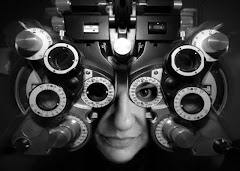ELIZABETH EDWARDS
Tuesday, December 07, 2010
Elizabeth Edwards died today at her home in North Carolina at age 61, and a day after her family released a statement saying her cancer would not benefit from further treatment. It is not unexpected news, but still very sad. Deaths that happen around holiday time seem particularly difficult to process. Their effect seems to linger longer somehow.
Her life will forever be defined as the terminal cancer victim whose husband, former U.S. Senator John Edwards, had an affair during their marriage, which produced a daughter. Obviously, Elizabeth was devastated by her husband’s rather slow process of fully owning up to his outside relationship, and I don’t think it would be a stretch to opine that the stress of such a severe emotional blow did nothing to help her health situation. Friends, family, the media, and the public came strongly to Elizabeth’s defense, and just as strongly vilified John Edwards for his actions and subsequent cowardice in handling himself. It is very unlikely he will ever hold any kind of elected office again.
I’m going to take a different view of the Edwards’, with more shades of grey than the black-and-white of the devil-who-wronged-the-angel spin can provide. What I don’t understand is how no one saw what happened to this couple coming from a mile away, including John and Elizabeth themselves.
Let’s go back to a crucial factor: both of the Edwards were lawyers, and ambitious. They agreed as a couple to play politics at the highest level, which was to try to get into the White House. Let me ask you these questions: how do you think that game is most often played, and by what kind of people, and for what personal outcome? I’ll answer for you: Big Time Politics is Play To Win, by people who will do almost anything to win, to achieve Big Time Power. The Edwards family didn’t need the money. They desired world power and world attention. I will keep saying “they” even though it was John Edwards on the ticket, because no one can do this alone. The spouse’s contribution and commitment is vital. Did the couple have noble service ambitions as well? Yes. But that isn’t what drives someone to vie for the top spot, or to support it. Lawyers are taught in school, and then by their firms, that winning is ALL. Wins are highs, and the more wins you get, the more that ambition demon must be fed, until nothing but the Presidency is on your to-do list. The Edwards’ were well-aware of the sacrifices and deals and alliances and soul-selling that happens in this process. That’s Washington, baby. They chose.
The couple married just days after each took the bar exam, and had two children, Wade and Catharine. Their son died tragically in a 1996 car accident, an unthinkable blow to any parent. This kind of horrific event is something one doesn’t ever “get over;” the best that can be obtained is that you don’t live in daily anguish. Losing a child breaks something in the mind, because it is never what is expected and is never right or normal and it changes the husband and wife relationship permanently in many ways. In the wake of the tragedy, Elizabeth Edwards decided to undergo fertility treatments to have another child at age 48. Emma Claire was born in 1998; son Jack two years later. No doubt the two children brought the couple and their older daughter great joy. But starting over in the parenting business later in life is also a stressful thing, and would further strain the marriage.
In 2004, Elizabeth Edwards was diagnosed with breast cancer. She chose not to tell her husband until he had finished his Vice Presidential campaign as not to worry him, and then underwent treatment. In 2007, her cancer returned and spread to her bones, making her diagnosis treatable but terminal. John Edwards had already begun his 2008 Presidential bid, and the couple decided to go ahead despite the news that the likelihood of Elizabeth living another five years was remote, and that the American public would likely not elect a president who would be concurrently coping with a dying spouse and grieving children.
Ambition and power ruled over common sense, privacy, and commitment to their children. John Edwards could have run for president after his wife was gone. The couple could never replace this precious time to spend as a family before Elizabeth would die.
But to make their decision even more curious, Elizabeth in 2007 was already aware that John had taken up with another woman, and John knew that he had fathered a child with her. How blindly ambitious and power-hungry did they both have to be to not realize that the news would never remain secret? The media and opposing forces would have dug it up no matter what – that’s what they do. If they were less selfish and more genuine in their lip-service to serve the American people and the Democratic Party, John Edwards’ political career should have ended when he decided to be with Rielle Hunter. But both John and Elizabeth no doubt knew of many, many, many political friends and foes who had similar skeletons yet undiscovered, and decided to believe they were immune from public disclosure. Of course, the campaign failed, and in January 2010, John finally admitted that he had a daughter with Ms. Hunter.
That was, more than reasonably, the end of the line for the Edwards’ marriage, and Elizabeth filed for legal separation with intent to divorce John after the mandatory one-year waiting period in North Carolina. Let’s recap what she went through: the death of her firstborn, two fertility-assisted late pregnancies, her husband’s Senate, VP, and presidential campaigns, cancer diagnosis and treatment, finding out about her husband’s affair, a terminal cancer diagnosis, finding out about Rielle and John’s child, and then finding out that others knew all about it and never told her (and one even wrote a book). By anyone’s definition, that is more than anyone should have to deal with in several lifetimes. Elizabeth Edwards deserves our compassion; fate dealt with her harshly, and she still served as an advocate for health reform and a hopeful face to those who were suffering similar tragedies.
What I find immeasurably sad is how the lawyer in her, the win-at-any-cost person, decided she was going to have her own win, her revenge. Her last word came in the form of a book published earlier this year, Resilience, and part of what she writes about is her foolishness in believing in a “Cinderella” story and the failure of her marriage. Her vitriol seems most focused upon Hunter, portrayed as a merciless predator, and her child, whom Elizabeth refers to as “it.”
And that is where Elizabeth Edwards’ grace ends for me. It doesn’t matter one damn bit how Frances Quinn Hunter came into being, because in the end she is a sister to Cate, Emma Claire, and Jack Edwards. Their relationship will go on for many decades past Elizabeth’s death. Elizabeth's fury is understandable; leaving the world with a public record of it is seriously questionable. Is that grace? Is that in the best interests of her children? Elizabeth Edwards’ focus should only have been on them and what actions would set them up best to go forward without her. Publicly venting about their father, his mistress, and their “it” was completely counterproductive to any kind of healing. The book leaves an open wound. Good luck with that, kids.
Ambition and power defined the Edwards’ marriage more than anything else. Did Elizabeth truly believe that her younger, dashingly-handsome, wildly-successful trial lawyer husband with major political aspirations wouldn’t be tempted to want more of everything offered to him, that he would always compartmentalize such drives to acceptable takes? That he wasn’t trained to never admit any guilt of any kind? In the legal profession, that’s for losers only. Did she really think that she and her husband would be exempt from the very high costs of life at the top, and acting-out behaviors from their incredibly difficult family tragedies?




